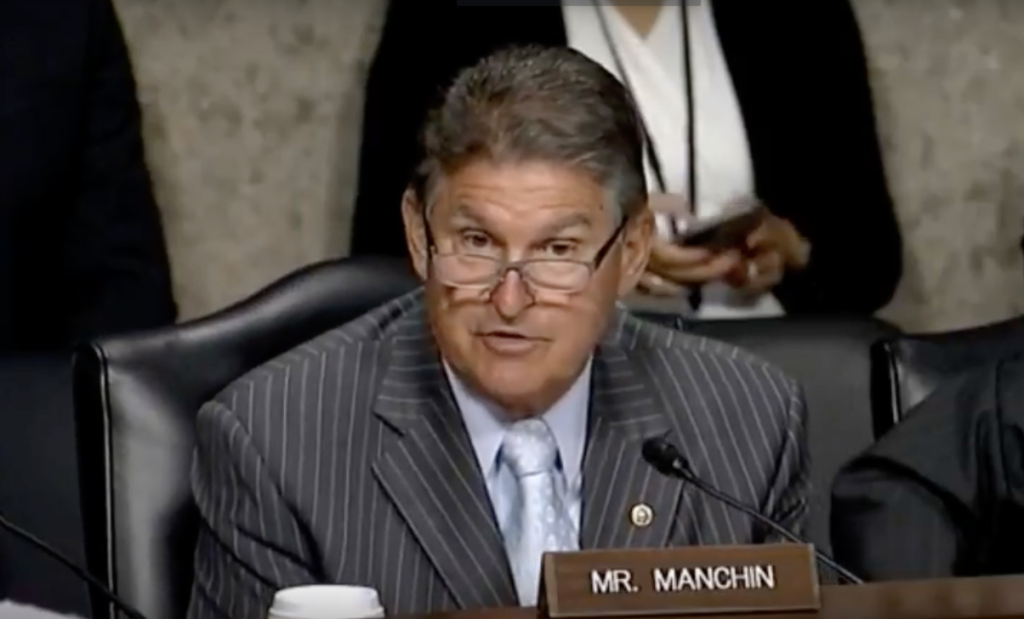On Wednesday, West Virginia Sen. Joe Manchin went after Facebook COO Sheryl Sandberg and Twitter founder Jack Dorsey about drug traffickers’ use of social media, during the Senate Intelligence Committee hearing on foreign influence on their platforms.
When it was his turn to do the questioning, Manchin said that he wants to see a bill similar to SESTA/FOSTA—the Fight Sex Trafficking Online Act packaged with the Stop Enabling Sex Traffickers Act (SESTA), signed into law in April—for drug trafficking.
Videos by VICE
Manchin said that West Virginia has been hit “extremely hard” by the illicit drug trade, especially opiates—and drew a parallel between drug trafficking and sex trafficking, in the context of how each use social media. He asked Sandberg and Dorsey how they take responsibility for dealers using their platforms to sell drugs, and whether they felt personally accountable for overdose deaths.
“Just like how we passed FOSTA and SESTA,” Manchin said, “we passed bills that held you liable and responsible. Don’t you think we should do the same with opiate drugs and they way they’re being used on your platform? Would you all support us doing that?”
Sandberg said it is “firmly against” Facebook’s policies to sell pharmaceuticals on the site, and said that treatment centers looking to buy ads on Facebook are required to be certified by a third-party. Dorsey said that on Twitter, selling drugs is prohibited, and that it is “looking deeply” at how selling drugs spreads on Twitter.
Dorsey said that Twitter is “open to dialogue” about Section 230 of the Communications Decency Act—which protects platforms from legal liability for what their users say and do—and that Twitter benefits from the protection of CDA. “The only reason we’re able to increase more health in a public square is because of CDA 230.”
Read more: ‘Sex Trafficking’ Bill Will Take Away Online Spaces Sex Workers Need to Survive
There has been some evidence of drug traffickers using social media to sell drugs and find new customers. In 2011, the International Narcotics Control Board released a report warning of traffickers using social media to lure young clients. A 2013 study in the Journal of Medical Internet Research found that direct-to-consumer advertising on social media did, in fact, make illicit drugs more accessible to users.
But Manchin’s suggestion to draft up a FOSTA/SESTA equivalent to tackle the problem shows that he hasn’t taken the time to understand how harmful that overbroad law actually was and continues to be. FOSTA/SESTA made it harder for law enforcement to catch actual abusers and traffickers, and drove consensual sex workers into working outside, with often deadly consequences.
FOSTA/SESTA also made it harder for sexual and reproductive health organizations to use these platforms. It’s blamed for shutting down sites used by sex workers to stay safe. Any similar legislation for drugs would likely be overly broad and have unintended effects that could do more harm than good.
FOSTA/SESTA was never about saving anyone. It was an effort by anti-sex lobbying groups and politicians like Manchin attempting to pander to their conservative bases with an easy “win.” A bill like it, for drugs, would be the same story.




